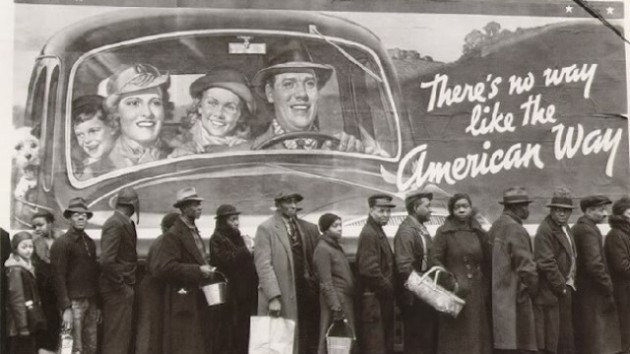The decline and fall of America’s unions
“Hell hath no fury like a bureaucrat scorned.” – Milton Friedman
Many blame the decline of union membership on Republicans and big business. But is that what history tells us? The answer is: No!
As political power becomes more centralized there is an irreversible decline in the power of unions. It is a cause and effect that cannot be denied or stopped.
American unions began forming in the mid-19th century in response to the social and economic impact of the industrial revolution. National labor unions began to form in the post-Civil War Era. The Knights of Labor emerged as a major force in the late 1880s, but it collapsed because of poor organization, lack of effective leadership, disagreement over goals, and strong opposition from employers and government forces.
Government forces are accelerating the collapse of unions. But how?
Oleg Atbashian in his book Shakedown Socialism writes, “Union perks mean nothing when there is nothing left to redistribute. The Soviets learned it the hard way. The American unions don’t seem to be able to learn from the mistakes of others.”
A recent example is how the unions first supported the Affordable Care Act and are now opposing it.
Townhall.com reported in July 2013, “The leaders of three major U.S. unions, including the highly influential Teamsters, have sent a scathing open letter to Democratic leaders in Congress, warning that unless changes are made, President Obama’s health care reform plan will “destroy the foundation of the 40 hour work week that is the backbone of the American middle class.”
If that’s not bad enough, the Affordable Care Act, if not modified, will “destroy the very health and wellbeing of our members along with millions of other hardworking Americans,” the letter says.
Atbashian uses the example of Poland’s Solidarnosc, an independent union that spearheaded the overthrow of the oppressive Communist regime in 1989. Why? Because, “…Current [union] perks can only exist in a free and competitive economy that ensures growth and generates wealth – known as ‘capitalist exploitation’ in the lingo of the champions of ‘redistributive justice’.”
Unions are only relevant if they retain their control to collectively bargain for wages and benefits. If the government takes over this role, as it did workplace safety with OSHA, then unions are doomed.
When government becomes the sole arbiter of the social and economic impact of industry, then unions are forced to submit.
Atbashian notes, “The workers are not herd animals, nor are they a separate biological species with a different set of interests. They are as human as anyone else who possesses a mind and free will, and therefore their long-term interests are not different than the rest of humanity. And since the interests of humanity lie with liberty, property rights and the rule of law, this is what the unions should stand for.”
Milton Friedman, in Free to Choose: A Personal Statement, wrote, “The ICC [Interstate Commerce Commission] illustrates what might be called the natural history of government intervention. A real or fancied evil leads to demands to do something about it. A political coalition forms consisting of sincere, high-minded reformers and equally sincere interested parties. The incompatible objectives of the members of the coalition (e.g., low prices to consumers and high prices to producers) are glossed over by fine rhetoric about ‘the public interest,’ ‘fair competition,’ and the like. The coalition succeeds in getting Congress (or a state legislature) to pass a law. The preamble to the law pays lip service to the rhetoric and the body of the law grants power to government officials to ‘do something.’ The high-minded reformers experience a glow of triumph and turn their attention to new causes. The interested parties go to work to make sure that the power is used for their benefit. They generally succeed. Success breeds its problems, which are met by broadening the scope of intervention.”
Friedman noted, “Bureaucracy takes its toll so that even the initial special interests [e.g. unions] no longer benefit. In the end the effects are precisely the opposite of the objectives of the reformers and generally do not even achieve the objectives of the special interests. Yet the activity is so firmly established and so many vested interests are connected with it that repeal of the initial legislation is nearly inconceivable. Instead, new government legislation is called for to cope with the problems produced by the earlier legislation and a new cycle begins.”
The “angel of death” for unions is progressivism, its primary weapon is big government bureaucrats, the anti-union soldiers.
RELATED:
Union membership declines in 2012 – US Department of Labor
Under Obama, black unemployment back to twice the white rate – PEW Research


